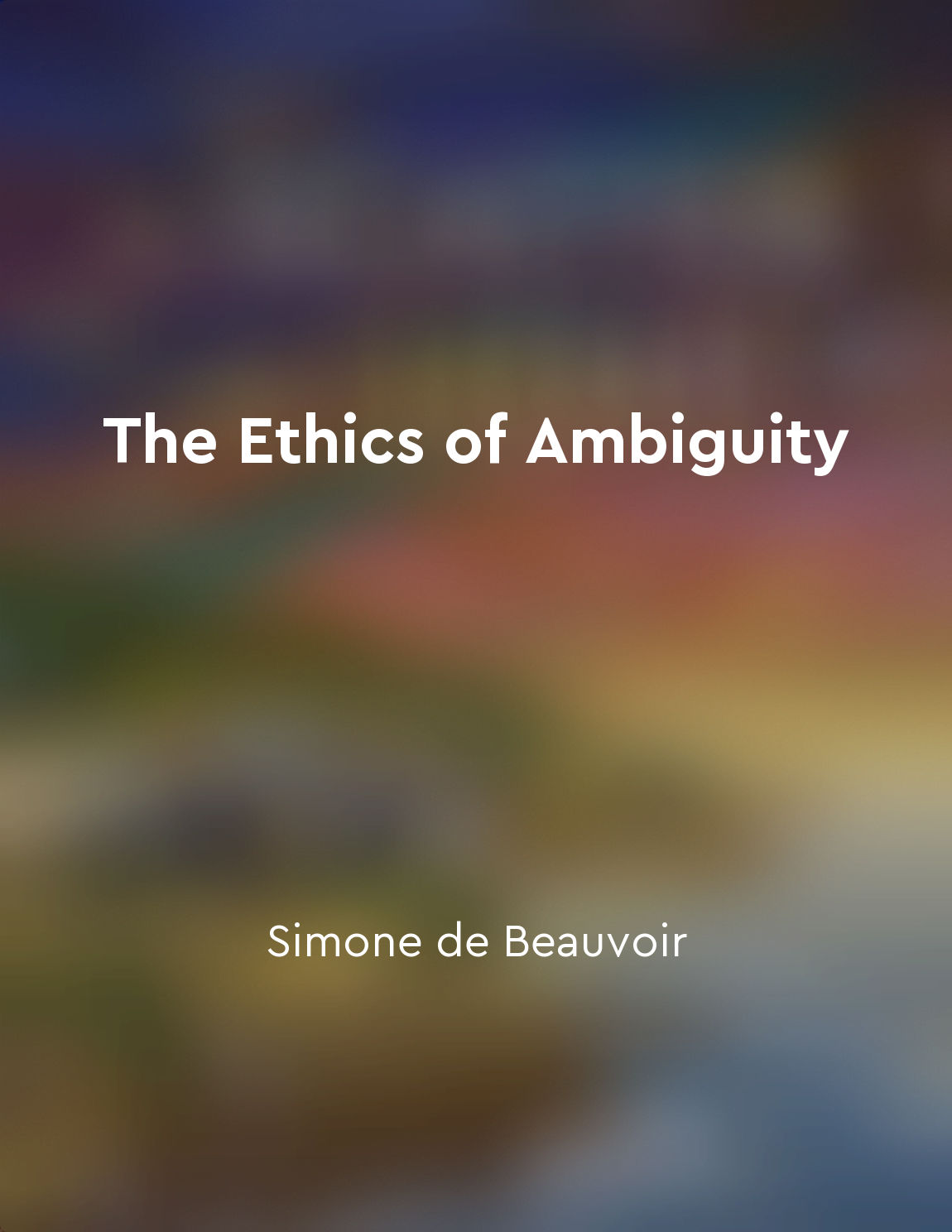We tend to demonize those with opposing moral views from "summary" of The Righteous Mind by Jonathan Haidt
We have a natural tendency to see the world in terms of good versus evil, and this tendency is amplified when it comes to moral disagreements. When we encounter someone with opposing moral views, we often assume that they must be driven by malevolent intentions. We demonize them, painting them as villains who are out to do harm. This demonization not only dehumanizes the other person, but it also shuts down any possibility of productive dialogue or understanding. Our tendency to demonize those with opposing moral views is rooted in our evolutionary history. In the past, our ancestors lived in small groups where cooperation was essential for survival. Those who strayed from the group's moral code were seen as a threat to the group's cohesion and were ostracized or even killed. This instinct to demonize outsiders helped our ancestors maintain social order and unity. In today's world, this instinct plays out in our political and social interactions. When we encounter someone with different moral views, we immediately see them as a threat to our own moral code. We feel a visceral need to denounce them and distance ourselves from them. This black-and-white thinking prevents us from seeing the nuance and complexity of their perspective. The key to overcoming our tendency to demonize those with opposing moral views is to recognize that morality is not a zero-sum game. Just because someone has different values or beliefs does not mean that they are inherently evil or malicious. By approaching moral disagreements with an open mind and a willingness to listen and empathize, we can begin to bridge the divide and find common ground. It is only through understanding and dialogue that we can move past demonization and towards a more harmonious society.Similar Posts

Cultural shifts and societal changes
Cultural shifts and societal changes have been a constant feature of human history, shaping the course of civilizations over ti...

Ambiguity can be a source of ethical strength
Ambiguity, far from being a weakness or something to be feared, can actually serve as a wellspring of ethical fortitude. It is ...
The motivation behind an action is what gives it moral worth, not the outcome
According to Immanuel Kant, the moral worth of an action is not determined by its outcome, but rather by the motivation behind ...
Celebrating individuality
The idea of celebrating individuality is a recurring theme in the essays of The Source of Self-Regard. Morrison emphasizes the ...
Hypocrisy knows no limits
The idea that hypocrisy knows no limits is a central theme in 'It Was All a Lie' by Stuart Stevens. Stevens explores how the Re...
The dehumanization of minorities is a hallmark of totalitarianism
The dehumanization of minorities is a hallmark of totalitarianism. Totalitarian regimes rely on the systematic dehumanization o...
Escaping from prison in Bombay
As I stood within the confines of my cell in Arthur Road Jail, I knew that my only chance for freedom lay in devising a plan to...

The idea of a divine creator is unnecessary to explain the complexity of the universe
The complexity of the universe is a fascinating subject that has long captivated human minds. For centuries, people have looked...
Political order requires a moral foundation
Political order is not a mere product of arbitrary human will or the manipulation of power dynamics. It is a complex system tha...
Hope for a better future through collective action
The idea of coming together to create a brighter tomorrow is a central theme in "The Great Unraveling" by Paul R. Krugman. It e...
